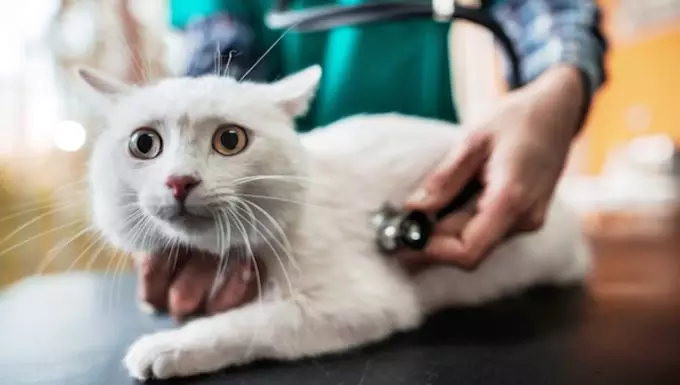Caring for our feline friends often comes with the responsibility of monitoring their health, and one of the conditions that can affect them is hepatomegaly, more commonly referred to as an enlarged liver. This condition can have significant implications for a cat’s overall well-being, making it crucial for pet owners to recognize signs and seek veterinary assistance promptly. In this article, we will delve into the symptoms, potential causes, and treatment options available for supporting a cat diagnosed with hepatomegaly.
The symptoms of hepatomegaly in cats can vary widely, but several signs are typically observable. Pet owners may first notice changes in their cat’s appetite; a loss of appetite is common, and in some cases, cats may refuse food altogether. This aversion to eating can lead to rapid weight loss, a worrying sign that should not be overlooked. Alongside weight changes, lethargy is another frequent symptom. Cats often appear more tired than usual, and even their playful nature may dwindle.
One of the more visible indicators of this condition is an abdominal swelling, which can give the impression of a distended belly. Additionally, cats suffering from hepatomegaly might exhibit changes in their drinking and urination habits, such as increased thirst and urination. In more advanced cases, jaundice – characterized by a yellowing of the skin and eyes – may occur, indicating a more severe dysfunction of the liver. Recognizing these signs early is crucial for effective intervention.
While an enlarged liver itself is concerning, it is essential to recognize that it is often a symptom of an underlying issue rather than a primary condition. Various factors can contribute to hepatomegaly in cats, including liver disease, infections, exposure to toxins, or metabolic disorders. Conditions like fatty liver disease, which is prevalent in overweight cats, can lead to liver enlargement due to fat accumulation in liver cells.
Additionally, certain infections, such as feline leukemia or feline infectious peritonitis, can also manifest through hepatomegaly. Furthermore, chronic diseases like hyperthyroidism can impact liver function and size. Understanding these possible causes can aid in navigating treatment options and addressing the root of the problem efficiently.
If you suspect that your cat may be suffering from hepatomegaly, it is imperative to seek veterinary care. A veterinarian will generally begin by taking a comprehensive medical history and conducting a physical examination. During this examination, the veterinarian may palpate the abdomen to assess the liver size directly. Blood tests will typically follow, providing insights into liver function and overall health.
In some cases, urine tests may also be conducted to rule out renal complications. Imaging techniques such as ultrasounds or X-rays are invaluable in visualizing organ size and structure, helping to confirm the diagnosis. Proper diagnosis is crucial, as it informs the subsequent treatment plan tailored to the cat’s specific needs.
Treatment for hepatomegaly hinges largely on the underlying cause. For instance, if an infection is present, a course of antibiotics may be necessary. In severe situations, hospitalization might be required to stabilize the cat and manage symptoms. Furthermore, dietary changes are often beneficial in supporting liver health. Your veterinarian may recommend a specialized diet that is low in sodium and rich in protein, both of which can promote healing.
Home care is equally important during recovery. Depending on the severity of the condition, your cat may require cage rest to limit physical activity and stress on the liver. Complete adherence to prescribed medications and dietary guidelines cannot be overstated in importance, as these are crucial to ensuring a successful recovery.
As cat owners, understanding conditions like hepatomegaly is fundamental to ensuring a long and healthy life for our furry companions. Being vigilant about changes in behavior and appetite can significantly impact health outcomes. If you notice any concerning symptoms, consult your veterinarian promptly. By taking proactive steps, including routine health check-ups and maintaining a watchful eye on your cat’s condition, you can help facilitate a full recovery and support their overall well-being. The journey may be challenging, but committed cat owners can play an essential role in their pet’s health management.


Leave a Reply